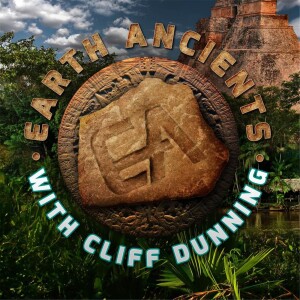
Miguel Mendonca & Philippe Ullens: The Mystery and Beauty of Crop Circles
 2022-08-27
2022-08-27
Download
Right click and do "save link as"
A crop circle, crop formation, or corn circle is a pattern created by flattening a crop, usually a cereal. The term was first coined in the early 1980s by Colin Andrews. Crop circles have been described as all falling "within the range of the sort of thing done in hoaxes" by Taner Edis, professor of physics at Truman State University.[3] Although obscure natural causes or alien origins of crop circles are suggested by fringe theorists,[4] there is no scientific evidence for such explanations, and all crop circles are consistent with human causation.
The number of reports of crop circles has substantially increased since the 1970s. There has been scant scientific study of them. Circles in the United Kingdom are not distributed randomly across the landscape but appear near roads, areas of medium to dense population and cultural heritage monuments, such as Stonehenge or Avebury. In 1991, two hoaxers, Doug Bower and Dave Chorley, took credit for having created many circles throughout England after one of their circles was described by an investigator as impossible for human beings to make.
Formations are usually created overnight, although some are reported to have appeared during the day. In contrast to crop circles or crop formations, archaeological remains can cause cropmarks in the fields in the shapes of circles and squares, but they do not appear overnight, and they are always in the same places every year. Nearly half of all crop circles found in the UK in 2003 were located within a 15 kilometres (9.3 mi) radius of the Avebury stone circles.
view more
The number of reports of crop circles has substantially increased since the 1970s. There has been scant scientific study of them. Circles in the United Kingdom are not distributed randomly across the landscape but appear near roads, areas of medium to dense population and cultural heritage monuments, such as Stonehenge or Avebury. In 1991, two hoaxers, Doug Bower and Dave Chorley, took credit for having created many circles throughout England after one of their circles was described by an investigator as impossible for human beings to make.
Formations are usually created overnight, although some are reported to have appeared during the day. In contrast to crop circles or crop formations, archaeological remains can cause cropmarks in the fields in the shapes of circles and squares, but they do not appear overnight, and they are always in the same places every year. Nearly half of all crop circles found in the UK in 2003 were located within a 15 kilometres (9.3 mi) radius of the Avebury stone circles.
More Episodes
Julie Ryder: The Megaliths of Montana
 2023-09-30
2023-09-30
 2023-09-30
2023-09-30
Destiny: Jen Frey, Communicating with Plants
 2023-09-27
2023-09-27
 2023-09-27
2023-09-27
Avi Loeb: Interstellar
 2023-09-09
2023-09-09
 2023-09-09
2023-09-09
Mike Ricksecker: Travels Through Time
 2023-09-06
2023-09-06
 2023-09-06
2023-09-06
Stephan Schwartz: Psychic Archaeology
 2023-08-26
2023-08-26
 2023-08-26
2023-08-26
Freddy Silva: Mystery of the Maya
 2023-08-12
2023-08-12
 2023-08-12
2023-08-12
Graham Phillips: The Mystery of Doggerland
 2023-07-29
2023-07-29
 2023-07-29
2023-07-29
Garret Yount: Why Vibes Matter
 2023-07-26
2023-07-26
 2023-07-26
2023-07-26
012345678910111213141516171819
Create your
podcast in
minutes
- Full-featured podcast site
- Unlimited storage and bandwidth
- Comprehensive podcast stats
- Distribute to Apple Podcasts, Spotify, and more
- Make money with your podcast
It is Free
- Privacy Policy
- Cookie Policy
- Terms of Use
- Consent Preferences
- Copyright © 2015-2024 Podbean.com


